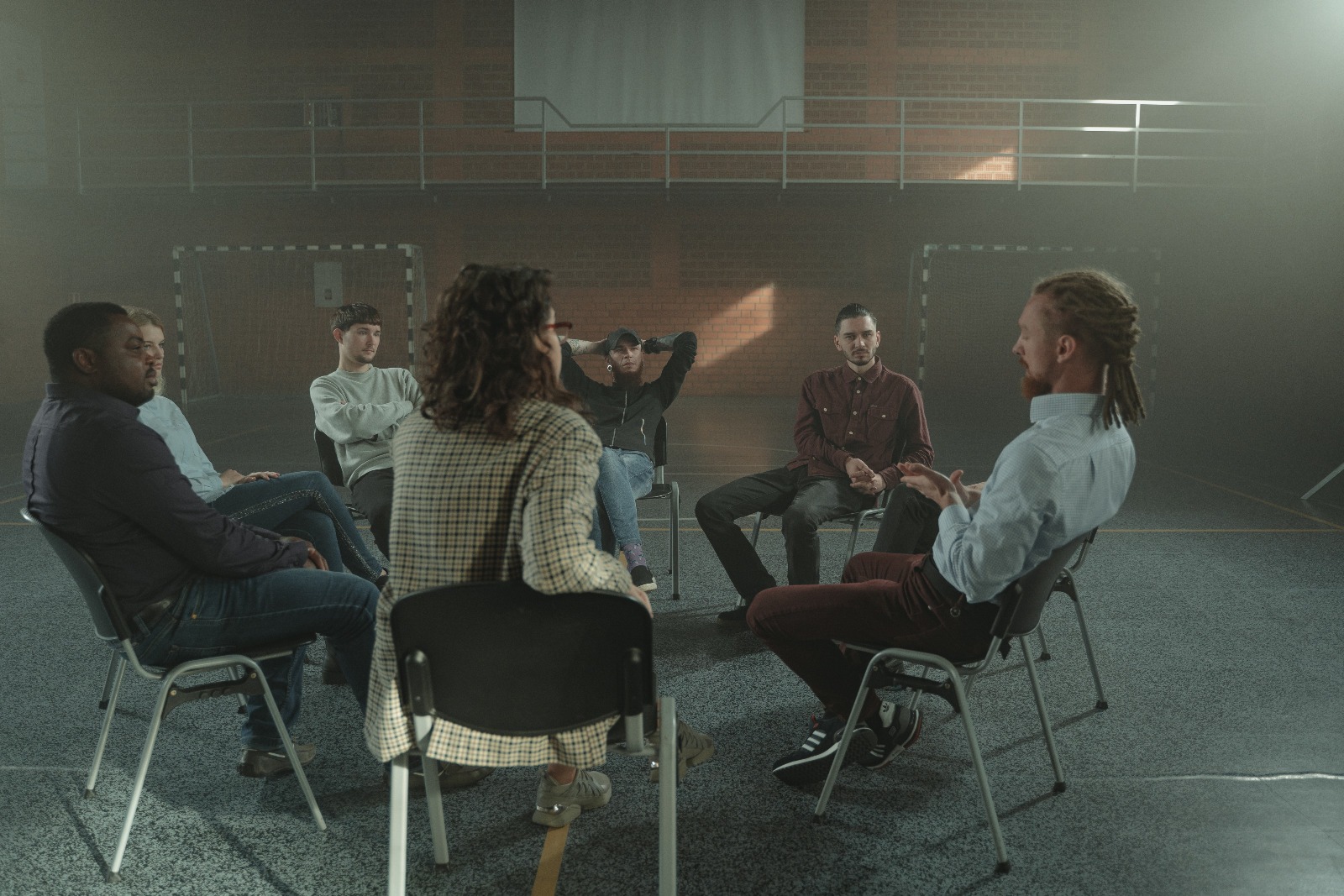Finding the right path to recovery from substance abuse is a crucial step toward a healthier and happier life. In Los Angeles County, All American Detox offers residential treatment programs designed to provide individuals with a structured environment where they can focus on healing and rebuilding their lives. This article explores the various therapeutic interventions and structured environments offered in residential treatment programs, emphasizing how these elements contribute to successful recovery outcomes.
Call Now for More Inofrmation (818) 918-6161
What Are Residential Treatment Programs?
Residential treatment programs involve live-in facilities where individuals receive intensive care and support for substance abuse and addiction. These programs typically last from 30 to 90 days, depending on the individual’s needs. The primary goal is to provide a safe and supportive environment that fosters healing and personal growth.
The Structured Environment of Residential Treatment
A structured environment is essential for recovery. At All American Detox in Los Angeles County, the residential treatment programs are meticulously designed to create a safe space where individuals can focus solely on their recovery. Here’s how structure plays a crucial role:
- Routine and Stability
- Residents follow a daily schedule that includes therapy sessions, group activities, meals, and recreational time. This routine instills a sense of stability, helping individuals transition away from chaotic lifestyles.
- 24/7 Supervision and Support
- A dedicated team of professionals, including therapists, counselors, and medical staff, provides round-the-clock care. This constant support helps residents feel safe and encourages them to engage in the recovery process.
- Peer Support
- Living with others facing similar challenges fosters a sense of community and belonging. Residents can share experiences, provide encouragement, and develop lasting friendships that support long-term recovery.
- Physical Environment
- The facilities are designed to be comfortable and inviting, creating a homelike atmosphere. This environment reduces anxiety and promotes healing, making it easier for individuals to open up and engage in therapy.
Therapeutic Interventions Offered
At All American Detox, a variety of therapeutic interventions are employed to address the multifaceted nature of addiction. These interventions aim to treat not only the symptoms of addiction but also the underlying issues that contribute to substance use.
1. Individual Therapy
Individual therapy is a cornerstone of residential treatment programs. This one-on-one counseling allows residents to explore their thoughts, feelings, and behaviors in a safe and confidential setting.
- Cognitive Behavioral Therapy (CBT)
- CBT helps individuals identify and change negative thought patterns and behaviors. This evidence-based approach is particularly effective for addressing the cognitive distortions often associated with addiction.
- Motivational Interviewing (MI)
- MI is a client-centered approach that enhances an individual’s motivation to change. It encourages residents to explore their ambivalence about quitting substances and helps them find their intrinsic motivation for recovery.
2. Group Therapy
Group therapy is a powerful component of residential treatment. It offers residents the opportunity to connect with peers, share their experiences, and learn from one another.
- Support Groups
- Support groups provide a safe space for individuals to discuss their struggles and triumphs. Sharing experiences with others fosters empathy and understanding, which can be incredibly healing.
- Psychoeducational Groups
- These groups focus on educating residents about addiction, recovery, and coping strategies. Understanding the nature of addiction helps individuals develop the skills they need to maintain sobriety.
3. Family Therapy
Addiction often affects not only the individual but also their family members. Family therapy addresses these dynamics and helps repair relationships that may have been damaged due to substance abuse.
- Communication Skills Training
- Family therapy sessions often include communication skills training to help families express their feelings and concerns constructively.
- Rebuilding Trust
- Therapists work with families to rebuild trust and strengthen their support systems, which are crucial for a successful recovery.
4. Holistic Therapies
Recognizing the importance of treating the whole person, All American Detox incorporates holistic therapies into its residential programs.
- Mindfulness and Meditation
- Mindfulness practices help individuals stay present and manage cravings. Meditation can reduce stress and improve emotional regulation, making it easier for residents to cope with the challenges of recovery.
- Yoga and Fitness
- Physical activity is a powerful tool for improving mental health. Yoga and fitness classes promote physical wellness, helping individuals reconnect with their bodies in a positive way.
- Art and Music Therapy
- Creative therapies provide residents with an outlet for self-expression. Engaging in art and music can be therapeutic, allowing individuals to explore emotions that may be difficult to articulate verbally.

The Importance of Aftercare
Successful recovery doesn’t end upon leaving a residential treatment program. Aftercare is a critical component of the recovery process, ensuring that individuals have the support they need as they transition back into daily life.
1. Continued Support
Aftercare programs at All American Detox provide ongoing support to individuals after they complete their residential treatment. This may include:
- Alumni Programs
- Alumni programs offer former residents a chance to connect with one another, share their experiences, and provide mutual support.
- Sober Living Environments
- Sober living houses allow individuals to maintain their sobriety in a supportive environment. These facilities often have house rules and guidelines to help residents stay accountable.
2. Ongoing Therapy
Continued therapy is essential for maintaining progress. Many individuals continue with outpatient therapy sessions after completing a residential program to ensure they have the necessary tools to cope with challenges.
3. Skill Development
During aftercare, individuals may participate in workshops focused on life skills, employment readiness, and coping strategies. Developing these skills is vital for successful reintegration into society.
Frequently Asked Questions (FAQ)
What is a residential treatment program?
A residential treatment program is a live-in facility where individuals receive intensive care for substance abuse and addiction. Participants engage in various therapeutic interventions in a structured environment designed to support their recovery journey.
How long do residential treatment programs typically last?
Most residential treatment programs last between 30 to 90 days, depending on the individual’s needs and progress in recovery. Some programs may offer longer stays for those who require additional support.
What types of therapies are offered in residential treatment programs?
Residential treatment programs often include individual therapy, group therapy, family therapy, and holistic therapies. Common therapeutic approaches include Cognitive Behavioral Therapy (CBT), Motivational Interviewing (MI), mindfulness practices, and creative therapies like art and music therapy.
Are family members involved in the treatment process?
Yes, family therapy is an essential component of residential treatment. It helps families address issues related to addiction, improve communication, and rebuild trust, which is crucial for long-term recovery.
What happens after completing a residential treatment program?
After completing a residential program, individuals are encouraged to participate in aftercare programs, which may include outpatient therapy, alumni support groups, and sober living environments to help maintain their recovery and prevent relapse.
How does a structured environment benefit recovery?
A structured environment provides routine, stability, and support, helping individuals focus on their recovery. It fosters a sense of safety and community, which can significantly enhance the healing process.
Can I choose the type of therapy I want in a residential program?
While participants may have some input, the treatment team at All American Detox typically recommends specific therapies based on individual needs and goals to ensure the most effective approach to recovery.
Conclusion
Residential treatment programs in Los Angeles County, particularly those offered by All American Detox, provide a structured and supportive environment for individuals seeking recovery from substance abuse. By incorporating a variety of therapeutic interventions, including individual and group therapy, family therapy, and holistic approaches, these programs address the complex nature of addiction.
If you or a loved one is struggling with addiction, consider the comprehensive residential treatment options available at All American Detox. With a commitment to healing the mind, body, and spirit, our programs are designed to foster long-lasting recovery and a brighter future. Don’t wait any longer—take the first step toward a healthier life today.





